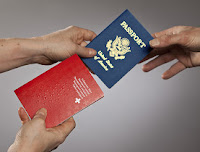- 40% of women younger than 30 would like to leave the U.S.
- 22% who disapprove of Trump would like to move vs. 7% who approve
- Canada is top desired destination for would-be migrant Americans
Though relatively average by global standards, the 16% of Americans overall who said in 2017 and again in 2018 that they would like to permanently move to another country -- if they could -- is higher than the average levels during either the George W. Bush (11%) or Barack Obama administration (10%).
Across the pond, The Telegraph observed a similar spike among Britons following the United Kingdom’s shock vote, in June 2016, to leave the European Union.
Indeed, political polarization is straining the social fabric on both sides of the Atlantic and bleeding over into once-apolitical realms. Anyone who’s spent time on the dating scene has a story or two about a date with strong opinions one way or another. This analysis suggests that ideology is indeed a major consideration in singles’ dating decisions.
Politics isn’t the only force driving Americans to relocate abroad. Leery of rising education costs in their home country, many young U.S. citizens go to university abroad. Others take their job searches overseas, seeking out high-growth economies with relatively low living costs. Some seek low-cost countries in which they can stretch their savings further without compromising their laid-back lifestyles. And some move for personal or family reasons, such as reuniting with a foreign-born spouse or parent.
While some countries (such as Canada and Singapore) welcome outsiders, others require aspiring immigrants to submit to grueling tests and numbing bureaucracies. Many (such as Japan) more or less ban permanent immigration. It’s not always easy to tell which is which.
If you’re thinking seriously about making a long-term or permanent move to another country, you must consider the following:
- What it means to live abroad
- The best (and easiest) countries to immigrate to
- General procedures and guidelines for moving abroad
- General costs and timelines for moving abroad
- Common considerations and restrictions for prospective immigrants
- Pros and cons of leaving the United States and moving abroad on a long-term or permanent basis
For a further discussion of each of these considerations go to Money Crashers.
Countries to Consider When Emigrating From the US.
National immigration policies are highly complex, vary widely from country to country, and are subject to frequent change. That said, a number of politically stable countries have developed reputations for consistently liberal and straightforward immigration policies.
These countries all traditionally welcome immigrants in large numbers (proportionate to national populations), set clear, straightforward rules and expectations for prospective immigrants who wish to live and work there on a long-term or permanent basis, and make it possible (though not always cheap or easy) for non-native-born individuals to become naturalized citizens.
1. Canada
 <img class="aligncenter size-inpost_fullwidth wp-image-228739" src="https://moneycrashers-sparkchargemedia.netdna-ssl.com/wp-content/uploads/2019/03/political-stable-countries-immigration-policies-canada-810x455.jpg" alt="Political Stable Countries Immigration Policies Canada" width="696" height="391" srcset="https://moneycrashers-sparkchargemedia.netdna-ssl.com/wp-content/uploads/2019/03/political-stable-countries-immigration-policies-canada-810x455.jpg 810w, https://moneycrashers-sparkchargemedia.netdna-ssl.com/wp-content/uploads/2019/03/political-stable-countries-immigration-policies-canada-918x516.jpg 918w, https://moneycrashers-sparkchargemedia.netdna-ssl.com/wp-content/uploads/2019/03/political-stable-countries-immigration-policies-canada-90x51.jpg 90w" sizes="(max-width: 696px) 100vw, 696px" />
<img class="aligncenter size-inpost_fullwidth wp-image-228739" src="https://moneycrashers-sparkchargemedia.netdna-ssl.com/wp-content/uploads/2019/03/political-stable-countries-immigration-policies-canada-810x455.jpg" alt="Political Stable Countries Immigration Policies Canada" width="696" height="391" srcset="https://moneycrashers-sparkchargemedia.netdna-ssl.com/wp-content/uploads/2019/03/political-stable-countries-immigration-policies-canada-810x455.jpg 810w, https://moneycrashers-sparkchargemedia.netdna-ssl.com/wp-content/uploads/2019/03/political-stable-countries-immigration-policies-canada-918x516.jpg 918w, https://moneycrashers-sparkchargemedia.netdna-ssl.com/wp-content/uploads/2019/03/political-stable-countries-immigration-policies-canada-90x51.jpg 90w" sizes="(max-width: 696px) 100vw, 696px" />
Due to its proximity and political stability, Canada is a popular destination for American expats. Canadian immigration policy favors three broad classes of people: business owners and investors who invest in the local economy, such as in job-creating ventures and real estate developments (business/entrepreneur class); working-age adults with college degrees or sought-after technical and professional skills (independent class); and family members of Canadian citizens or permanent residents (family class).
It is far more difficult for retirees and unskilled workers without family ties to immigrate to Canada. Also, many immigrants are subject to English and/or French language requirements, though non-fluent immigrants are not always disqualified.
To be eligible for permanent resident status, you must spend at least two years of any rolling five-year period in Canada. Canadian permanent residents can apply for citizenship after three years. Canada does recognize dual citizenship for naturalized citizens.
2. Australia
 <img class="aligncenter size-inpost_fullwidth wp-image-228737" src="https://moneycrashers-sparkchargemedia.netdna-ssl.com/wp-content/uploads/2019/03/political-stable-countries-immigration-policies-autralia-810x455.jpg" alt="Political Stable Countries Immigration Policies Autralia" width="696" height="391" srcset="https://moneycrashers-sparkchargemedia.netdna-ssl.com/wp-content/uploads/2019/03/political-stable-countries-immigration-policies-autralia-810x455.jpg 810w, https://moneycrashers-sparkchargemedia.netdna-ssl.com/wp-content/uploads/2019/03/political-stable-countries-immigration-policies-autralia-918x516.jpg 918w, https://moneycrashers-sparkchargemedia.netdna-ssl.com/wp-content/uploads/2019/03/political-stable-countries-immigration-policies-autralia-90x51.jpg 90w" sizes="(max-width: 696px) 100vw, 696px" />
<img class="aligncenter size-inpost_fullwidth wp-image-228737" src="https://moneycrashers-sparkchargemedia.netdna-ssl.com/wp-content/uploads/2019/03/political-stable-countries-immigration-policies-autralia-810x455.jpg" alt="Political Stable Countries Immigration Policies Autralia" width="696" height="391" srcset="https://moneycrashers-sparkchargemedia.netdna-ssl.com/wp-content/uploads/2019/03/political-stable-countries-immigration-policies-autralia-810x455.jpg 810w, https://moneycrashers-sparkchargemedia.netdna-ssl.com/wp-content/uploads/2019/03/political-stable-countries-immigration-policies-autralia-918x516.jpg 918w, https://moneycrashers-sparkchargemedia.netdna-ssl.com/wp-content/uploads/2019/03/political-stable-countries-immigration-policies-autralia-90x51.jpg 90w" sizes="(max-width: 696px) 100vw, 696px" />
Distance-wise, Australia is about as far from the United States as one can get, but its high standard of living, shared language, and stunning landscapes make it an attractive destination.
Like Canada, Australia favors skilled workers, business owners (including people who wish to start businesses after arriving in Australia), investors who don’t manage the day-to-day operations of the companies or projects in which they invest, and family members of Australian citizens and visa-holders. The Australian government’s special immigration initiatives include a “regional migration” program that expedites entry for immigrants willing to move to small towns and rural regions in Australia’s remote interior, and a “work holidays” program that eases skills requirements for 18-to-30-year-old immigrants who wish to live and work in Australia for up to a year at a time.
Depending on your visa type (for example, a sponsored work visa), you may be able to apply for permanent resident status as soon as you arrive legally in Australia. You can apply for Australian citizenship if you’ve lived in Australia as a non-permanent resident for four consecutive years (so work holidays participants aren’t eligible) and have held permanent resident status for at least 12 months. Australia does recognize dual citizenship.
3. New Zealand

<img class="aligncenter size-inpost_fullwidth wp-image-228742" src="https://moneycrashers-sparkchargemedia.netdna-ssl.com/wp-content/uploads/2019/03/political-stable-countries-policies-new-zealand-810x455.jpg" alt="Political Stable Countries Policies New Zealand" width="696" height="391" srcset="https://moneycrashers-sparkchargemedia.netdna-ssl.com/wp-content/uploads/2019/03/political-stable-countries-policies-new-zealand-810x455.jpg 810w, https://moneycrashers-sparkchargemedia.netdna-ssl.com/wp-content/uploads/2019/03/political-stable-countries-policies-new-zealand-918x516.jpg 918w, https://moneycrashers-sparkchargemedia.netdna-ssl.com/wp-content/uploads/2019/03/political-stable-countries-policies-new-zealand-90x51.jpg 90w" sizes="(max-width: 696px) 100vw, 696px" />New Zealand is even more remote than Australia, which lies approximately 1,000 miles to its northwest. Its amazing landscapes and famously laid-back lifestyle make it a prime destination for immigrants seeking an ideal work-life balance. New Zealand’s immigration system favors skilled workers, family members, and investors. Most workers need a formal job offer from a New Zealand employer to qualify for entry.
Like Australia, New Zealand has a working holiday visa program that allows younger people to stay in the country for up to 12 months at a time. It’s very hard for retirees to relocate to New Zealand, except under special circumstances, such as reuniting with a family member.
To apply for permanent resident status, you must hold a non-resident visa continuously for at least two years. You can apply for citizenship after five years as a permanent resident. New Zealand does recognize dual citizenship.
4. Singapore
 <img class="aligncenter size-inpost_fullwidth wp-image-228741" src="https://moneycrashers-sparkchargemedia.netdna-ssl.com/wp-content/uploads/2019/03/political-stable-countries-immigration-policies-singapore-810x455.jpg" alt="Political Stable Countries Immigration Policies Singapore" width="696" height="391" srcset="https://moneycrashers-sparkchargemedia.netdna-ssl.com/wp-content/uploads/2019/03/political-stable-countries-immigration-policies-singapore-810x455.jpg 810w, https://moneycrashers-sparkchargemedia.netdna-ssl.com/wp-content/uploads/2019/03/political-stable-countries-immigration-policies-singapore-918x516.jpg 918w, https://moneycrashers-sparkchargemedia.netdna-ssl.com/wp-content/uploads/2019/03/political-stable-countries-immigration-policies-singapore-90x51.jpg 90w" sizes="(max-width: 696px) 100vw, 696px" />
<img class="aligncenter size-inpost_fullwidth wp-image-228741" src="https://moneycrashers-sparkchargemedia.netdna-ssl.com/wp-content/uploads/2019/03/political-stable-countries-immigration-policies-singapore-810x455.jpg" alt="Political Stable Countries Immigration Policies Singapore" width="696" height="391" srcset="https://moneycrashers-sparkchargemedia.netdna-ssl.com/wp-content/uploads/2019/03/political-stable-countries-immigration-policies-singapore-810x455.jpg 810w, https://moneycrashers-sparkchargemedia.netdna-ssl.com/wp-content/uploads/2019/03/political-stable-countries-immigration-policies-singapore-918x516.jpg 918w, https://moneycrashers-sparkchargemedia.netdna-ssl.com/wp-content/uploads/2019/03/political-stable-countries-immigration-policies-singapore-90x51.jpg 90w" sizes="(max-width: 696px) 100vw, 696px" />
Singapore is a tiny nation-state at the tip of the Malaysian Peninsula. Its favorable location at the intersection of several busy trade routes has contributed to its breakneck growth (and comfortable status as one of the world’s richest countries). And, due to its status as an international business hub, English is widely spoken here. But its limited supply of human capital makes Singapore quite dependent on foreign workers. According to the Singaporean Government, approximately 2 million of the country’s 5.26 million inhabitants were foreign-born as of 2011.
Singapore’s immigration policy has changed several times over the years, but the current iteration heavily favors skilled, high-earning workers. In fact, visa classes are awarded on the basis of income. Only relatively high-earning workers, those earning more than approximately $3,000 in U.S. currency per month, can sponsor their families.
You can apply for permanent residency after working legally in Singapore for at least six months. Male citizens must commit to two years of military service, and Singapore does not recognize dual citizenship for naturalized citizens, so many permanent residents choose to forgo citizenship.
5. Brazil
 <img class="aligncenter size-inpost_fullwidth wp-image-228738" src="https://moneycrashers-sparkchargemedia.netdna-ssl.com/wp-content/uploads/2019/03/political-stable-countries-immigration-policies-brazil-810x455.jpg" alt="Political Stable Countries Immigration Policies Brazil" width="696" height="391" srcset="https://moneycrashers-sparkchargemedia.netdna-ssl.com/wp-content/uploads/2019/03/political-stable-countries-immigration-policies-brazil-810x455.jpg 810w, https://moneycrashers-sparkchargemedia.netdna-ssl.com/wp-content/uploads/2019/03/political-stable-countries-immigration-policies-brazil-918x516.jpg 918w, https://moneycrashers-sparkchargemedia.netdna-ssl.com/wp-content/uploads/2019/03/political-stable-countries-immigration-policies-brazil-90x51.jpg 90w" sizes="(max-width: 696px) 100vw, 696px" />
<img class="aligncenter size-inpost_fullwidth wp-image-228738" src="https://moneycrashers-sparkchargemedia.netdna-ssl.com/wp-content/uploads/2019/03/political-stable-countries-immigration-policies-brazil-810x455.jpg" alt="Political Stable Countries Immigration Policies Brazil" width="696" height="391" srcset="https://moneycrashers-sparkchargemedia.netdna-ssl.com/wp-content/uploads/2019/03/political-stable-countries-immigration-policies-brazil-810x455.jpg 810w, https://moneycrashers-sparkchargemedia.netdna-ssl.com/wp-content/uploads/2019/03/political-stable-countries-immigration-policies-brazil-918x516.jpg 918w, https://moneycrashers-sparkchargemedia.netdna-ssl.com/wp-content/uploads/2019/03/political-stable-countries-immigration-policies-brazil-90x51.jpg 90w" sizes="(max-width: 696px) 100vw, 696px" />
Brazil is South America’s largest country by population and area. Though it’s not traditionally known as a magnet for immigrants, Brazil does have a history of welcoming outsiders. It has the largest population of ethnic Japanese outside Japan itself, for instance.
In recent years, resource-dependent Brazil has stepped up programs to attract skilled immigrants in an effort to address persistent workforce talent deficiencies and boost its service economy’s competitiveness. Retirees with a monthly income of at least $2,000 (U.S. currency) are welcome as well. However, it’s very difficult or impossible for unskilled workers to immigrate to Brazil.
Some newcomers, including investors and business owners, can apply for permanent residence as soon as they obtain their initial entry visa. Permanent residents can apply for citizenship after four years of continuous residency in Brazil, but that time-frame is shorter for certain classes of immigrants, including investors and business owners. Brazil does recognize dual citizenship for naturalized citizens.
One important note: English isn’t widely spoken outside middle- and upper-class areas of major Brazilian cities, so immigrants almost invariably need to learn Portuguese to assimilate fully.
If you’re spooked by some countries’ income requirements for new immigrants, these passive income ideas could give your balance sheet a much-needed boost in retirement (or before).
6. Germany
 <img class="aligncenter size-inpost_fullwidth wp-image-228740" src="https://moneycrashers-sparkchargemedia.netdna-ssl.com/wp-content/uploads/2019/03/political-stable-countries-immigration-policies-germany-810x455.jpg" alt="Political Stable Countries Immigration Policies Germany" width="696" height="391" srcset="https://moneycrashers-sparkchargemedia.netdna-ssl.com/wp-content/uploads/2019/03/political-stable-countries-immigration-policies-germany-810x455.jpg 810w, https://moneycrashers-sparkchargemedia.netdna-ssl.com/wp-content/uploads/2019/03/political-stable-countries-immigration-policies-germany-918x516.jpg 918w, https://moneycrashers-sparkchargemedia.netdna-ssl.com/wp-content/uploads/2019/03/political-stable-countries-immigration-policies-germany-90x51.jpg 90w" sizes="(max-width: 696px) 100vw, 696px" />
<img class="aligncenter size-inpost_fullwidth wp-image-228740" src="https://moneycrashers-sparkchargemedia.netdna-ssl.com/wp-content/uploads/2019/03/political-stable-countries-immigration-policies-germany-810x455.jpg" alt="Political Stable Countries Immigration Policies Germany" width="696" height="391" srcset="https://moneycrashers-sparkchargemedia.netdna-ssl.com/wp-content/uploads/2019/03/political-stable-countries-immigration-policies-germany-810x455.jpg 810w, https://moneycrashers-sparkchargemedia.netdna-ssl.com/wp-content/uploads/2019/03/political-stable-countries-immigration-policies-germany-918x516.jpg 918w, https://moneycrashers-sparkchargemedia.netdna-ssl.com/wp-content/uploads/2019/03/political-stable-countries-immigration-policies-germany-90x51.jpg 90w" sizes="(max-width: 696px) 100vw, 696px" />
Germany is the European Union’s largest and most dynamic economy, so it’s no wonder that the country is a magnet for skilled (and unskilled) immigrants. The E.U.’s Schengen Agreement allows E.U. residents and visitors to travel uninhibited across national borders, giving German immigrants access to most of the European continent. E.U. rules also allow German permanent residents and citizens to live and work in other E.U. countries, with some restrictions.
You can apply for permanent residency in Germany following five consecutive years of temporary residency, and for citizenship following eight total, consecutive years of residency. Keep in mind that, as Germany does not currently recognize dual citizenship for naturalized citizens, Americans who wish to obtain German citizenship must renounce their American citizenship. If you plan to live in the U.S. at some point in the future, it’s often better to forgo the German citizenship application.
Also, though many Germans are fluent in English, particularly in major cities, communication is easier (and locals friendlier) in German. Also, the German government requires most immigrants to demonstrate basic command of the native language before entering the country.
Life doesn’t always work out as planned. If you’re upset about the state of politics, stuck in a relationship rut, struggling to make ends meet financially, or just feeling under-stimulated by your current routine, a change of scenery probably seems like a simple, seductive solution to your problems. Who hasn’t fantasized about loading up the car or buying a one-way ticket and heading off to make a new life somewhere exotic and new?
But the grass isn’t always greener on the other side. Many ostensibly liberal democracies, such as France and Germany, face serious political threats from increasingly bold (and popular) nationalist parties, whose members believe religious and ethnic minorities have no place in Western Europe. Others, such as Canada and Australia, struggle with economic problems brought about by falling commodity prices. And some, such as Japan, throw up virtually insurmountable barriers to immigration in misguided efforts to protect their economies and traditional cultures.
You can live in such places for a time, but you might not ever find comfort or prosperity. You may find that sticking around is a better idea after all?
Read more at: Tax Times blog














